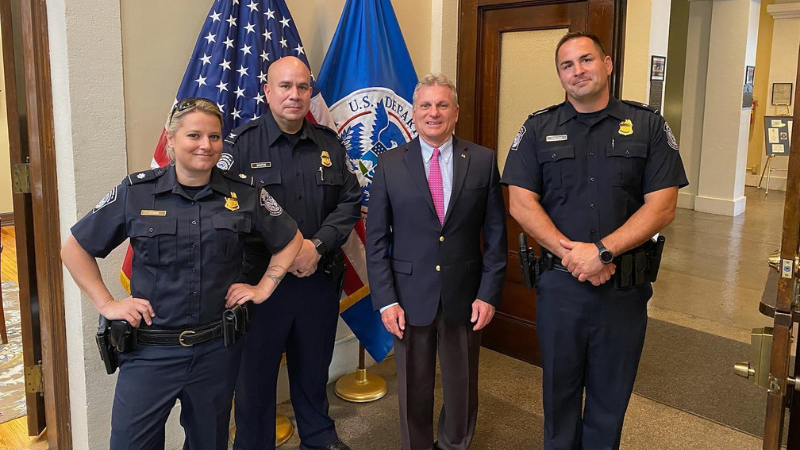Congressman Buddy Carter (R-GA) said banning TikTok from government devices is a good start, but he believes there is more work to do in order to protect Americans' data and privacy from the Chinese Communist Party (CCP).
“Anyone who takes our national security seriously should, at a minimum, support the TikTok ban from House of Representatives’ devices,” said Carter, who has called for a total ban of the popular video-sharing app. “But frankly, it isn’t enough. The CCP has an ear in every TikTok user’s pocket, and we must deafen it by banning this app for good.”
In December, Sen. Marco Rubio (R-FL) introduced the Averting the National Threat of Internet Surveillance, Oppressive Censorship and Influence, and Algorithmic Learning by the Chinese Communist Party (ANTI-SOCIAL CCP) Act, which would call on President Joe Biden to ban social media apps that are headquartered in "countries of concern" or that share data with those countries. The proposed bill specifically mentions TikTok and ByteDance.
More recently, Catherine L. Szpindor, the House's chief administrative officer, notified staff in an internal memo that her office’s cybersecurity unit had determined that TikTok posed a "high risk to users due to a number of security risks" and must be deleted from mobile phones, NBC reported.
"House staff are NOT allowed to download the TikTok app on any House mobile devices," the memo stated, according to NBC. "If you have the TikTok app on your House mobile device, you will be contacted to remove it."
TikTok said in a December statement that it is working to "meaningfully address any security concerns” that have been raised at both the federal and state level. “These plans have been developed under the oversight of our country’s top national security agencies — plans that we are well underway in implementing — to further secure our platform in the United States, and we will continue to brief lawmakers on them,” the statement said.
FBI Director Christopher Wray recently expressed concerns over the potential for the Chinese government to engage in espionage or influence via TikTok.
In November, Wray told the House Homeland Security Committee that the FBI has "national security concerns" about TikTok operations in the U.S., saying that the Chinese government could use the app to influence Americans or control their devices, NPR reported.
Wray said, according to that report, that the FBI's concerns "include the possibility that the Chinese government could use it to control data collection on millions of users or control the recommendation algorithm, which could be used for influence operations if they so chose, or to control software on millions of devices, which gives it an opportunity to potentially technically compromise personal devices."
TikTok's parent company ByteDance is based in China, where national security laws state that companies must share data with the government if asked. Last summer, leaked audio from a ByteDance meeting confirmed that China-based ByteDance employees could and had accessed the non-public data of American TikTok users on multiple occasions.
Beside the action on a national level, 31 states have prohibited TikTok from being downloaded on state devices, and multiple other states have proposed similar bans, Forbes reported.
Carter is serving his fourth term in Congress. Before that, he was a member of Georgia's General Assembly, according to his website.

